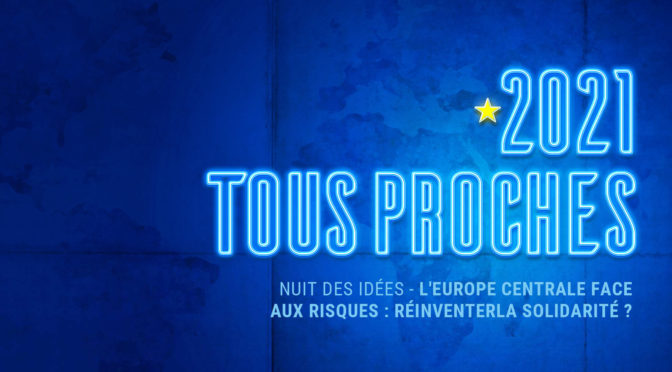
In the framework of the Night of Ideas and on the occasion of the 30th anniversary of CEFRES, the French Institute in Prague and CEFRES invite you to the online conference “Central Europe facing risks: reinventing solidarity?”
Given the environmental, safety and now health risks facing Europe, especially Central Europe, two main attitudes are clashing: national and community withdrawal on the one hand, and national and international solidarity on the other. How can we (re)invent forms of solidarity in Central Europe? What kind of historical experience can inspire public action today and outline the contours of living together? How can we answer to the challenges posed by the current pandemic to social cohesion within European nations but also to the cohesion of the European Union itself? A French historian, a Polish philosopher and a Czech journalist will share their expertise and confront their points of view on these crucial issues.
Speakers:
Opening words by Alexis Dutertre, French Ambassador in the Czech Republic.
Thomas Serrier, historian, professor at the University of Lille, co-publisher (with Etienne François) of Europa. Notre histoire, Les Arènes, Paris, 2017.
Michał Kozłowski, philosopher, associate professor at the University of Warsaw, author of Le Monde diplomatique (Polish edition).
Saša Uhlová, reporter.
Moderator: Jérôme Heurtaux, political scientist, director of CEFRES.
The conference will be available live:
– in French with Czech simultaneous translation via Zoom: https://zoom.us/j/97516953316?pwd=Mk5mQVJWR0FOKzkzZkNEUlgzM3pBUT09,
– in French on the Facebook of CEFRES and the French Institute in Prague.
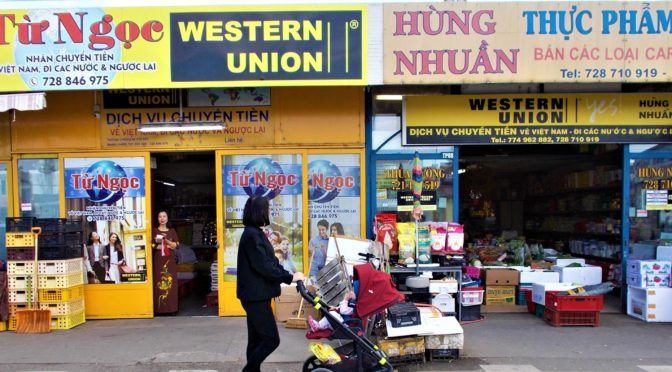
The fifth session of IMS / CEFRES Epistemological seminar will be hosted by:
Felipe Kaiser Fernandes (PhD candidate at CEU / associate at CEFRES)
Topic: An Anthropology of Middleman Minorities: The Case of Sapa in Prague
Organisers: Jérôme Heurtaux (CEFRES), Claire Madl (CEFRES), Tomáš Weiss (FSV UK) and Mitchell Young (IMS FSV UK)
Where: on line
To register, please contact: claire(@)cefres.cz
When: Wednesday, December 16th, 4:30 pm- 6:00 pm
Language: English
Reading:
- Edna Bonacich : “A Theory of Middleman Minorities”. American Sociological Review, vol. 38, n° 5 (oct., 1973), p. 583-594.
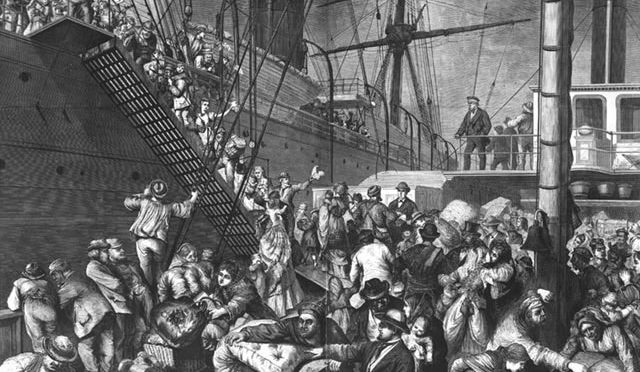
The 11th session of FSV / CEFRES seminar “Reflecting on Crises” will be hosted by:
Maria Kokkinou, CEFRES / IMS FSV UK
Florence Vychytil-Baudoux, EHESS / associate at CEFRES
Subject: “Migration Crises” in the Light of History and Anthropology
Where: online.
For any question, please contact the organizers: maria.kokkinou@cefres.cz
When: Wednesday, December 16th, 12:30-13:50pm
Language: French
As part of the seminar “Enjeux contemporains. Penser les crises” / Current Issues. Reflecting on Crises, organized by Maria Kokkinou (CEFRES / UK) and Jérôme Heurtaux (CEFRES):
Presentation of the seminar:
The crisis has the wind in its sails: due to the appearance and extensive spread of Covid-19 in 2020, this concept has regained worldwide attention, last observed during the financial crisis of 2009. Apart from these spectacular moments of global turmoil, we can no longer count the events or phenomena that are described as crises.
A concept inextricably linked to modernity, a “crisis” (pre)occupies our societies in all its dimensions. The polysemic uses of the term and its very topicality prompt us to revisit this concept, its different meanings and uses. This seminar course is devoted to this task. It will involve the intervention of researchers from various disciplines – political sociology, history, art history, anthropology, philosophy, etc.
What realities are qualified as “crises” and in which ways are they critical? What is a crisis and how to explain its emergence? How does a crisis unfold, what are its effects and consequences? Why do crises give rise to conflicts of interpretation over their meaning? Is the notion of crisis a central operator of our modernity and a key to understanding the challenges that contemporary societies face?
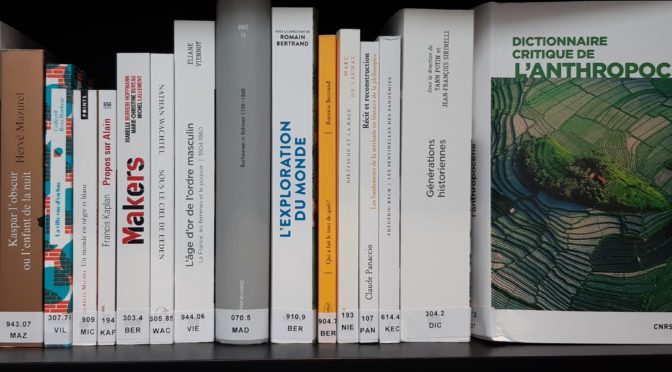
The new edition of CEFRES Review of Books will take place on Tuesday 15 December at 3 pm, online,
at the following link :
https://us02web.zoom.us/j/88409623977?pwd=RmxybGovUWhqbC9sK21uOEZPL3FoZz09
This informal meeting gathers CEFRES team, the library readers, and professionals from libraries and publishing. The aim of our Review of Books is to make better known the publishing landscape in humanities and social sciences. Each book is presented in no more than 10 minutes, so to stress its originality and stakes.
So far, the following presentations are announced:
- Romain Bertrand : Qui a fait le tour de quoi ? l’affaire Magellan (Verdier 2020) by Florence Vychytil
- Pierre Charbonnier : Abondance et liberté (Paris : La Découverte, 2020) by Hana Dohnálková
- Francis Kaplan : Propos sur Alain (Gallimard, 2020) by Petr Horák
- M. Ksinan : L’homme qui parlait avec les étoiles (Eur’ORBEM éditions, 2019) by Mátyás Erdélyi
- Pierre Rosanvallon : Le siècle populisme (Seuil, 2020) by Felipe Fernandes
- Adèle Van Reeth : La vie ordinaire (Gallimard 2020) by Petr Horák
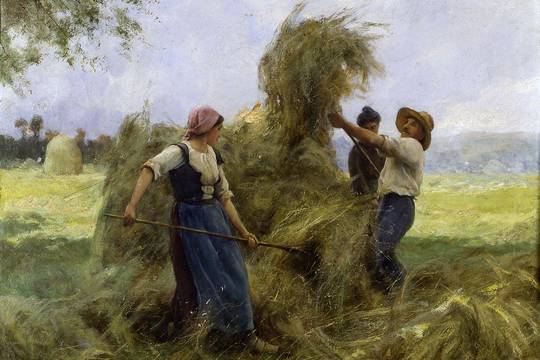
The 6th session of the Franco-Czech Historical Seminar, organized by the Institute for Czech History of the Faculty of Arts, Charles University (FF UK) in collaboration with CEFRES, will be hosted by:
Maria Kokkinou (CEFRES / Université Charles)
Topic: Who is „the other“? Reflections from an anthropological perspective
Where: Faculty of Arts of Charles University. Online.
To register, please contact: jaroslav.svatek(@)ff.cuni.cz
When: Thursday 10th December, 9:00 – 12:30
Language: French
This session is part of the Franco-Czech Historical Seminar, organized by Jaroslav Svátek and Martin Nejedlý.
For more information, visit the website of the seminar at the Faculty of Arts
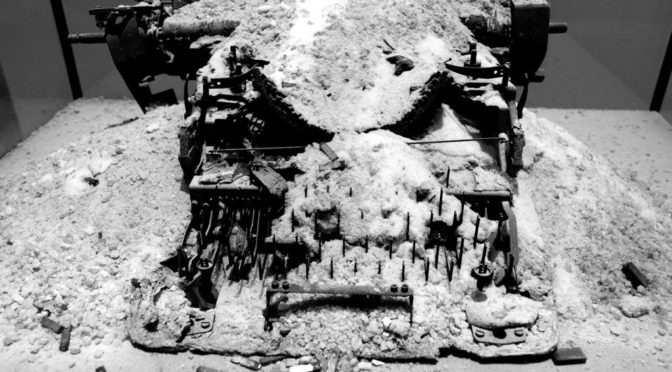
10th session of FSV / CEFRES seminar “Reflecting on Crises” will be hosted by:
Claire Madl (CEFRES)
Subject: Crisis of reading or media revolution?
Where: online.
For any question, please contact the organizers: maria.kokkinou@cefres.cz
When: December 9, Wednesday, 12:30-1:50pm
Language: french
As part of the seminar:
“Enjeux contemporains. Penser les crises” / Current Issues. Reflecting on Crises
organized by Maria Kokkinou (CEFRES / UK) and Jérôme Heurtaux (CEFRES):
Presentation of the seminar:
The crisis has the wind in its sails: due to the appearance and extensive spread of Covid-19 in 2020, this concept has regained a world-wide attention, last observed during the financial crisis of 2009. Apart from these spectacular moments of global turmoil, we can no longer count the events or phenomena that are described as crises.
A concept inextricably linked to modernity, a “crisis” (pre)occupies our societies in all its dimensions. The polysemic uses of the term and its very topicality prompt us to revisit this concept, its different meanings and uses. This seminar course is devoted to this task. It will involve the intervention of researchers from various disciplines – political sociology, history, art history, anthropology, philosophy, etc.
What realities are qualified as “crises” and in which ways are they critical? What is a crisis and how to explain its emergence? How does a crisis unfold, what are its effects and consequences? Why do crises give rise to conflicts of interpretation over their meaning? Is the notion of crisis a central operator of our modernity and a key to understanding the challenges that contemporary societies face?






